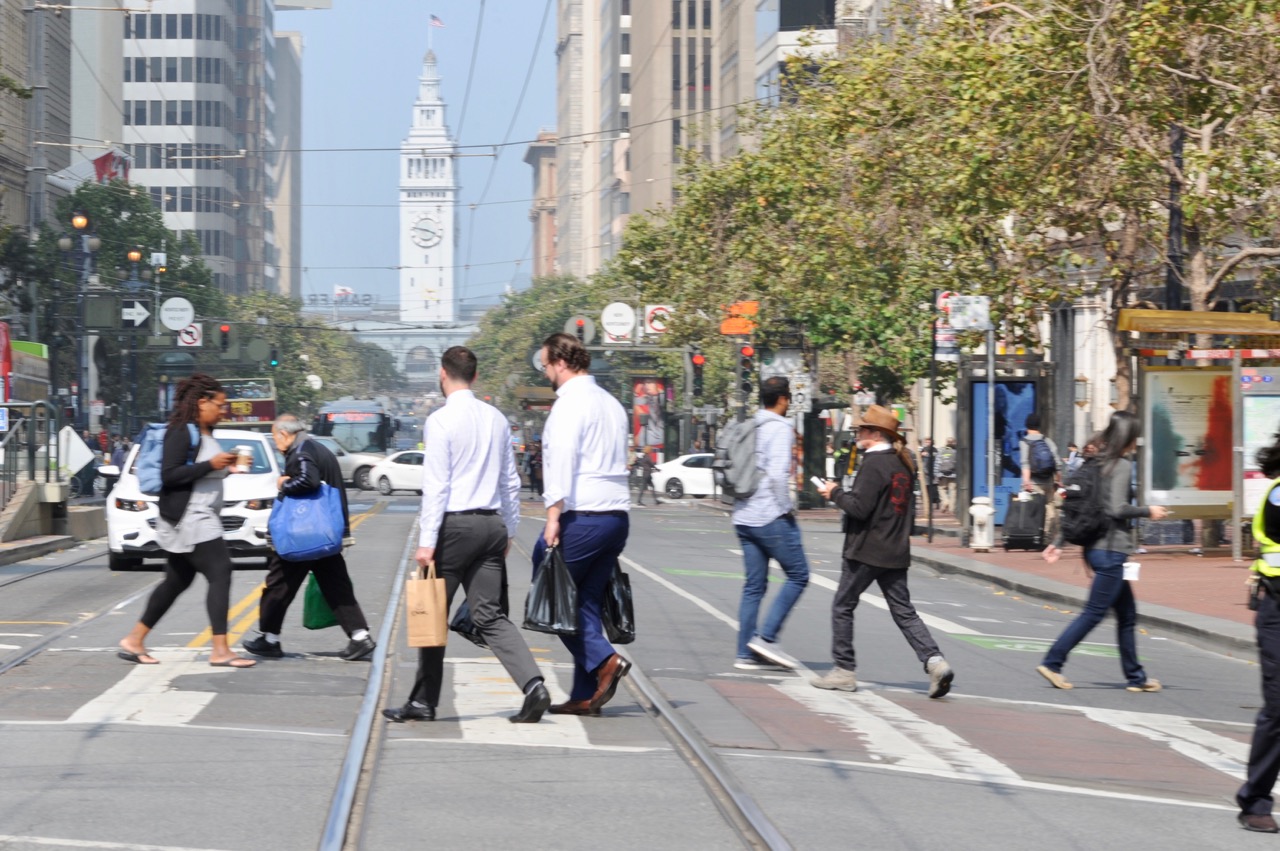
San Francisco City Downtown, California. (Photo: Lynn Yeh/Shutterstock)
San Francisco Superior Court Wipes Away $50 Million in Traffic Fines, 180,000 Civil Assessments
Late fines payments go into the state’s general fund rather than to local courts
By Evan Symon, September 20, 2022 4:52 pm
According to an assessment by the San Francisco Superior Court, $50 million in traffic fine late fees on more than 180,000 civil assessments was wiped away due to a new state law.
The law in question, Assembly Bill 199, was signed into law on June 30th, but has been taking the courts months to look into. The new debt elimination law has any late fines payments go into the state’s general fund rather than to local courts to help stop the practice of courts from getting revenue through issued citations. AB 199 also caps fines and late payment amounts, with those who fail to appear in court or who fail to pay all or any portion of a fine or to pay an installment of bail having the new cap be a late payment fine of $100 instead of the current $300.
“California should not fund our local courts by asking the courts to impose fees that they benefit from. Courts should be funded separate and apart from these fees,” said San Francisco Treasurer Jose Cisneros’s director of The Financial Justice Project Anne Stuhldreher earlier this month. “Eliminating the debt from this unfair and unnecessary fee and lowering it is a common sense reform and an important step forward. It will bring relief to hundreds of thousands of Californians.”
With the law covering all fines dating back to the mid 2000’s and coming into effect this July, courts across have California scrambled to figure out how much can now be charged and who is effected. The San Francisco Superior Court, after review, eliminated $50 million in outstanding fines and effectively erased 180,000 civil assessments as a result of the new AB 199 law. The Court noted that around 1/3rd of all traffic fines levied in the city were not paid in time and received the additional fine.
“This new law isn’t going to encourage any bad driving behavior,” explained Daryl Rosa, a traffic violation lawyer in the Bay Area, to the Globe on Tuesday. “All it is doing is bringing debt relief to many in the city who have had a lot of fines tied to them, lowering how much in late fees can be given, and shifting to the state getting the late fees instead of the courts.”
“A lot of people thought it was a power play to get more funding to the state. And while they will be getting millions a year from this, it was mainly done to counter the courts from getting a lot of fine money and being incentivized to get as many of these late penalties as possible. The thought is now that they’ll be a bit kinder when handing out fines since they are now detached from any financial benefit. Time will tell to see how successful this will be.”
San Franciscans, as well as those who had received traffic fines in the city, can look up, for a 3.5% service fee, to see if there are any fines listed under their drivers license, as well as what the new amount they will owe following the Court’s action, on the Superior Court website.
- Bill to Require Law Enforcement Disclosure if AI Was Used To Help Write Reports - August 7, 2025
- Gov. Newsom Files FOIA Request To ‘Expose True Cost’ Of L.A. Federal Troop Deployment for Anti-ICE Riots - August 6, 2025
- California Redistricting: How Newsom’s Plan Will Demolish Hard Fought GOP Gains - August 6, 2025





Traffic violation fines are a tax. The state actually budgets for this revenue. Unfair laws are put in place and high penalties assigned for the purpose of REVENUE. Yes there should be reasonable fines for speeding etc. but not the draconian fines, court fees and all the rest that people have to pay for minor offenses.
A few years ago our company had a well paid project manager from another state, his equally high paid wife worked elsewhere. He got a ticket for some off reason – may have been a mirror penetrating a handicap parking line. He first said “Oh well.” Then he found out the amount with everything stacked on top included. He went ballistic! He and his wife both quit, moved, and I doubt paid the fine.
I wonder to this day how much tax revenue the state lost from this pair.